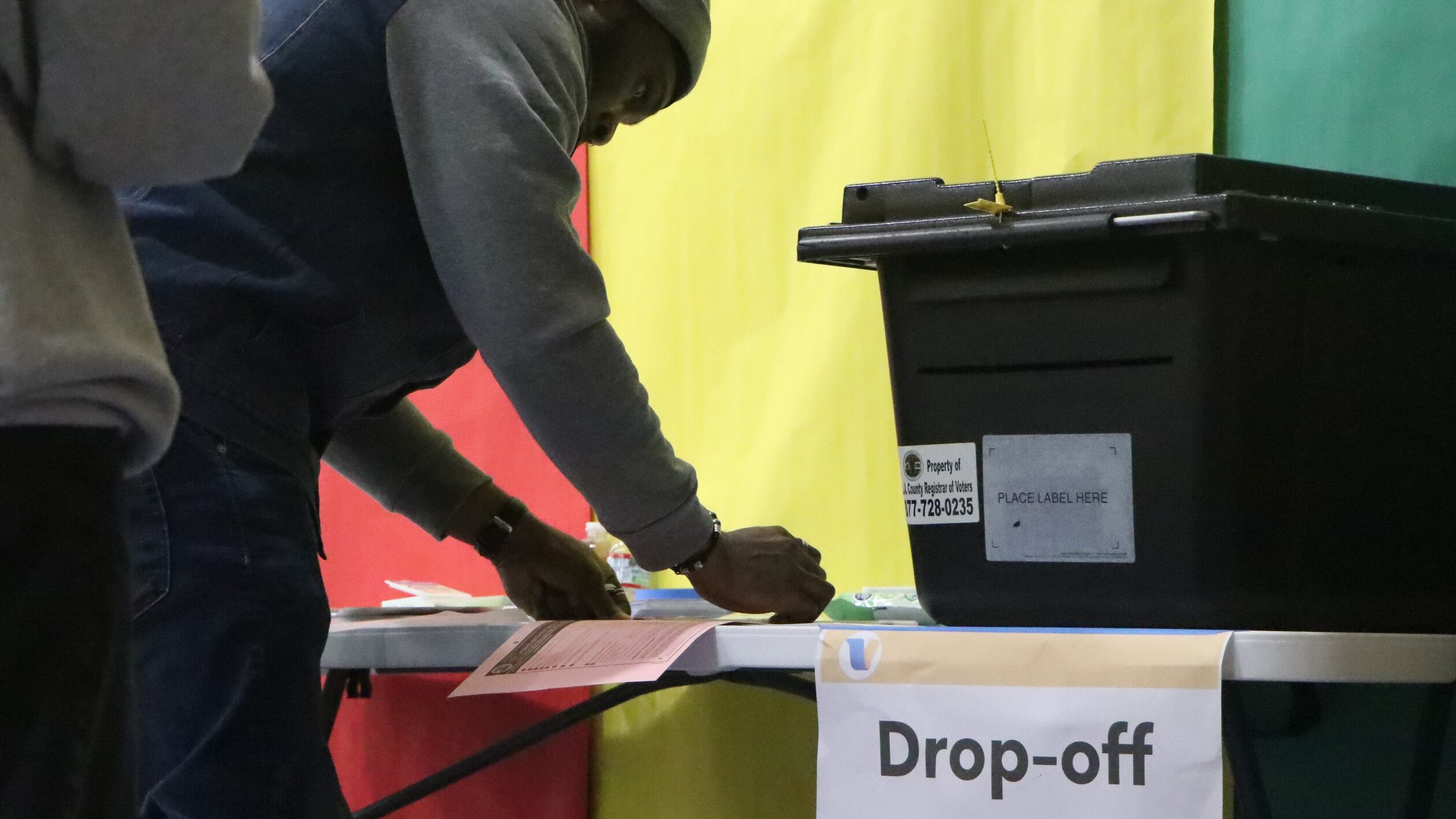Several California-based activist organizations discussed how the upcoming state ballot measure, Proposition 36, may harm public safety at a virtual meeting on Tuesday morning.
Also known as the Homelessness, Drug Addiction and Theft Reduction Act, Prop. 36 is one of 10 total state-wide initiatives on the California ballot this November. The measure would allow felony charges to be brought against anyone twice convicted of theft under $950 or drug-related crimes on their third offense. Both offenses have been classified as misdemeanors since the passing of Prop. 47 in 2014, following a Supreme Court ruling that required the state to reduce its incarcerated population from 180% to 137.5% of prison capacity.
Lex Steppling, an organizing director at the Los Angeles Community Action Network, opened the meeting with a discussion of how Prop. 47 should have been “the floor, not the ceiling” for state-wide prison reform.
“Prop. 36 is not about making anyone safer. Prop. 36 is about a reinvestment in the prison industrial complex,” he said. “Prop. 47 was supposed to be the first step in the right direction.”
Steppling called it “understandable” to be feeling unsafe due to the current housing crisis across California, but noted that increasing the budget of the carceral system would only take funding away from low-income communities and exacerbate existing issues.
“Nothing causes mental health issues more than a sense of financial and economic stress, and…nothing drives [homelessness] more than jail,” he said. “Prop. 36 is here to try to manipulate people to be mad at the wrong people for the wrong reasons.”
A poll conducted by the UC Berkeley Institute of Governmental Studies found that 56% of likely California voters were in favor of Prop. 36 as of August. From 2018 to 2023, the state’s violent crime rate increased 15.1%. In the same timeframe, the property crime rate decreased by 3.8%.
Matyos Kidane, a community organizer with Stop LAPD Spying, said Prop. 36 has partially gained traction due to the lobbying efforts of major retailers that have publicized incidents of theft within their stores.
“In L.A. and in other parts of the country, [Prop. 36] has really relied on the fabrication of narratives around organized retail theft that have been largely debunked,” Kidane said. “I think it’s important for context to name the fact that large corporations like Target have always supported policing both ideologically, but also materially, through donations.”
The National Retail Federation retracted its claim that close to 50% of missing merchandise in 2021 was the result of organized retail crime last December. The New York Times reported that experts estimated the value to be closer to 5%.
Geneviéve Jones-Wright, founding executive director of Community Advocates for Just and Moral Government based in San Diego, said while Prop. 36 proponents claim the law will improve public safety, the opposite is true once incarcerated individuals are released.
“History has shown us that piling on felonies does not help,” she said. “They tear apart families and communities without addressing the root causes of the issues. Felony convictions saddle individuals with lifelong barriers to housing, employment and education, and nearly make reintegration impossible because of the stigma.”
Salil Dudani of the Civil Rights Corps — a national legal nonprofit organization that deals with incarceration issues nationwide — raised a similar point.
“Locking people up like this increases crime,” he said. “It’s so destabilizing to a person’s life, to pluck them out of their community, to separate them from their family, to separate them from their job, and put them in a jail cell, that they become more likely to commit crime.”
If Prop. 36 passes this November, the California Secretary of State’s office estimates the law’s implementation will cost an additional several 10s of millions of dollars annually, mostly in order to incarcerate a greater number of people.
Carmen Elena Girasol, a program coordinator at the Jefferson Community Center and Park in Humboldt County, noted that a budget increase for the state’s carceral system would only take away funding for programs such as her own that are having a positive impact on low-income and minority populations.
“Peer mentor programs, drug counseling, job placement and job counseling, these are all of the things that will be impacted,” she said. “As everybody here has already said, we know that these services work and that we need more of this, not less of this … To lose that would be devastating.”
